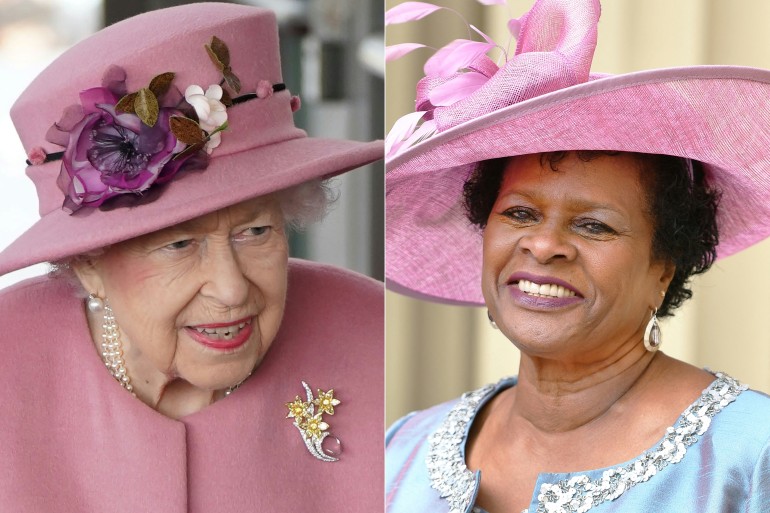Trends
Why Is Barbados Just Becoming A Republic, Since they Gained Independence in 1966?
On Monday night, Barbados transitioned from a constitutional monarchy to a parliamentary republic, which begs the question Why is Barbados just becoming a republic, since they gained independence in 1966?

On Monday night, Barbados transitioned from a constitutional monarchy under the authority of Queen Elizabeth II of the United Kingdom to a parliamentary republic under the leadership of Dame Sandra Manson as the elected president. Which begs the question Why is Barbados just becoming a republic, since they gained independence in 1966?
Barbados was one of England’s first slave colonies. English settlers first occupied the island in 1627 and, under British control, it became a sugar plantation economy using enslaved people brought in from Africa.
The Island Continued to trade slaves until it was outlawed by the Slave Trade Act 1807, Slavery was fully abolished in the country In 1834.
On 30 November 1966, Barbados became an independent state through the help of prominent activists such as Grantley Herbert Adams, who helped found the Barbados Labour Party (BLP), Hugh Gordon Cummins, Errol Barrow and many others
Although the 1966 independence meant that the Queen of the United Kingdom ceased to have sovereignty over Barbados, but the island chose to remain under the constitutional monarchy with Elizabeth II as Queen of Barbados.
The country also opted to remain within the Commonwealth of Nations and the queen was represented locally by a Governor-General.
However, over the years, the country has made several proposals and set up several commissions to transition the country from a constitutional monarchy into a republican government.
In 1979, a commission known as the Cox Commission on the Constitution was set up and charged with studying the feasibility of introducing a republican system. The Cox Commission came to the conclusion that Barbadians preferred to maintain the constitutional monarchy. The proposal to move to a republican status was therefore not pursued.
In February 2005 the Government of Barbados announced its intention to hold a referendum on the republic issue. It introduced a Referendum Bill that month. The Bill was passed into law as the Referendum Act in October 2005.
However, the Act itself could not amend Barbados’s constitution, because a majority of two-thirds of Parliament is required to make any amendments.
The Government of Barbados announced on 15 September 2020 that it intended to become a republic by 30 November 2021, the 55th anniversary of its independence resulting in the replacement of the hereditary title of the Queen of Barbados with the elected position of the President of Barbados.
Barbados would then cease to be a Commonwealth realm but can maintain membership in the Commonwealth of Nations like Guyana and Trinidad and Tobago. Commonwealth countries are a “loose association of former British colonies and current dependencies”.
On 20 September 2021, just over a full year after the announcement for the transition was made, the Constitution Amendment Bill, 2021 was introduced to the Parliament of Barbados and was passed on 6 October 2021
The Bill made amendments to the Constitution of Barbados, introducing the office of the President of Barbados to replace the role of Elizabeth II, Queen of Barbados.
On 12 October 2021, the incumbent Governor-General of Barbados Dame Sandra Mason was jointly nominated by the Prime Minister and Leader of the Opposition as a candidate for the first president of Barbados and was subsequently elected on 20 October. Mason took office on 30 November 2021
